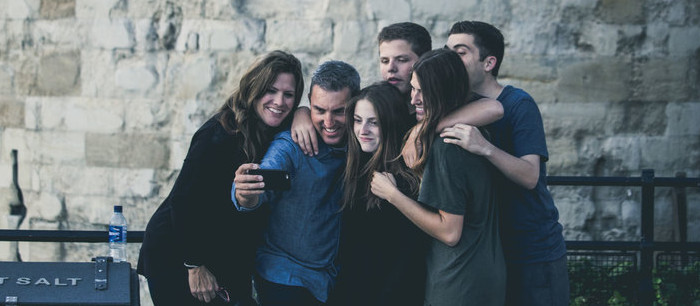The stats don’t lie. Most of us are sharing more than we intend to – with audiences we never intended to connect with – on social media. This is especially true of teens who are sharing more than ever before, according to the Pew Research Center. There are many factors at play when it comes to why we’re posting so much of our lives on Facebook and elsewhere but the end result is the same: We are making ourselves vulnerable without even realizing we’re doing it.
How do thieves and predators use social media? It can be as simple as searching for local homeowners talking about being away on vacation or more sophisticated, like using Google Street View to spot vulnerable locations. Safety measures like home alarm monitoring and good quality locks can only do so much to protect your home and the people in it. It’s up to each of us to make sure we’re doing all we can to keep the private details of our lives out of the hands of criminals by using social media safely – or not at all.
Here are four ways you can protect your family online:
Vacation Plans or Big Purchase? Keep It to Yourself
There’s nothing like telling the world that you’re off to California or that you just installed a new 50-inch TV with a surround sound system in your great room, but sharing isn’t always smart. Convicted burglars use Facebook as much as the rest of us do and according to statistics, they’re using social networks to find their next victims.
They wait and watch until they come across posts that inadvertently tell them a local homeowner will be away on vacation during certain dates, then they use previous posts and location information (there are still plenty of online telephone directories) to figure out exactly where to plan their next hit. But just keeping plans quiet isn’t enough. Even checking into an airport lounge can tip off thieves to the fact that you won’t be home.
Use Built-In Privacy Settings to Protect Yourself
Make sure share settings that automatically include your location in social media posts are toggled to off across platforms. And check that you’re only sharing information with your actual friends (and not scammers or burglars) at least once a month. Unfortunately these settings are not permanent! Many platforms will reset privacy preferences each time there’s an update to the system, which means that you may be posting publicly without even realizing it.
If keeping your social profiles private seems like overkill in an age when people seem to share everything online, consider that your privacy settings are also protecting your kids. There are predators out there who at best will steal your photos and at worst will use personal information you’ve shared on Facebook and other social networks to figure out where you and your kids live.

Keep Your Friends Close and Your Enemies Far Away
As tempting as it may be to accept any and all friend requests, be as choosey as you are in real life when choosing who to befriend on social media. Go through your friends lists now and then and clear out anyone you don’t know. When you receive new friend requests check to verify that the account is genuine and not a scam account that was created using stolen information. Facebook in particular seems to attract scammers who take details from public profiles and use them to create fake accounts that look real. If you see an account that’s definitely a fake, report it.
Think Before You Post Those Pics!
Unless your privacy settings are airtight, posting photographs that show where you and your family are can leave you vulnerable to burglars and predators who are able to track where you are at any given time. Photo sharing may seem like an innocuous activity, but consider that the average parent will post almost 1,000 photos of their children on social networks in the first five years of their lives to a survey by The Parent Zone. With hardly any other information, those photos make it easy to map a family’s movements – burglars and predators can easily figure out your weekly schedule by analyzing when you posts photos and where they’re taken.
Chances are you’re not going to stop using social media altogether. It’s tough to give up completely when most of us use sites like Facebook and Twitter to stay in touch with relatives and friends scattered across the globe. So be smart and stay safe when you use social media and teach your kids to use social media safely, too. A little caution can go a long way toward making sure your family never becomes just another statistic.





